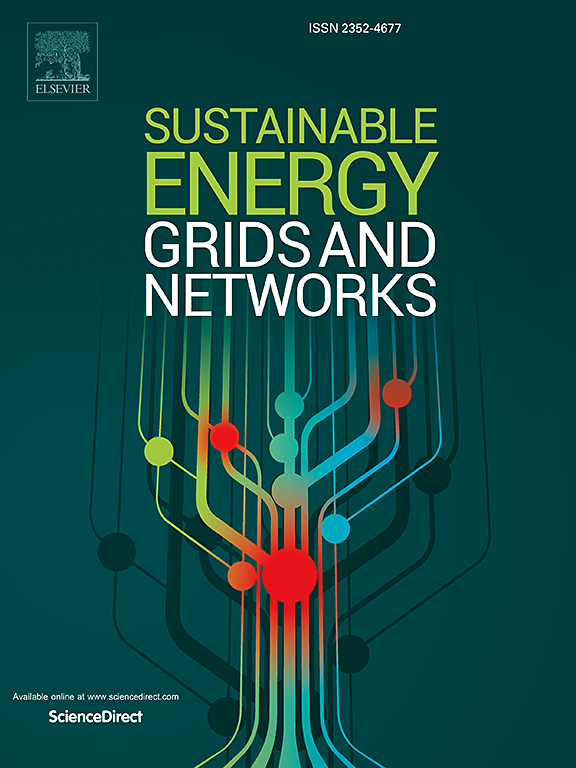Impedance-based stability analysis of MW-sized inverter-based resources connected to weak grids considering phase delay compensation
IF 5.6
2区 工程技术
Q2 ENERGY & FUELS
引用次数: 0
Abstract
The operation of inverter-based resources connected to weak grids poses stability challenges. For megawatt-sized converters, the limitations imposed in terms of switching frequency result in non-negligible delays introduced by the digital implementation of the control system. These delays impact both system design and small-signal stability limits. To allow the proper characterization of the study, an investigation of bottom-up design approaches and best practices is conducted for selecting per-unit parameters. An in-depth analytical impedance-based modeling of the resource is performed to account for the proper representation of components and control system in the synchronous-reference frame, including control and modulation delays that result in axis coupling. A phase delay compensation technique is proposed and implemented within a modified current controller. The impedance-based stability analysis is performed through the application of the generalized Nyquist criterion to assess the maximum power that the resource can deliver during weak grid operations. The analysis shows that the proposed phase delay compensation technique effectively extends the small-signal stability limit of the inverter-based resource. The methodology is validated through the state-space eigenvalue analysis, and a set of EMT simulations. Finally, results are validated using a control hardware-in-the-loop experimental setup, which employs a real-time FPGA-based simulation platform and an actual converter controller.
考虑相位延迟补偿的兆瓦级逆变器资源接入弱电网的阻抗稳定性分析
基于逆变器的弱电网资源的运行对稳定性提出了挑战。对于兆瓦级的变流器,在开关频率方面施加的限制导致由控制系统的数字实现引入的不可忽略的延迟。这些延迟会影响系统设计和小信号稳定性限制。为了对研究进行适当的描述,对自下而上的设计方法和最佳实践进行了调查,以选择每单位参数。对资源进行了深入的基于阻抗的分析建模,以解释同步参考框架中组件和控制系统的适当表示,包括导致轴耦合的控制和调制延迟。提出了一种相位延迟补偿技术,并在改进的电流控制器内实现。基于阻抗的稳定性分析是通过应用广义奈奎斯特准则来评估资源在弱电网运行时可以提供的最大功率。分析表明,所提出的相位延迟补偿技术有效地扩展了基于逆变器的资源的小信号稳定性极限。通过状态空间特征值分析和一组EMT仿真验证了该方法的有效性。最后,利用基于fpga的实时仿真平台和实际转换器控制器的控制硬件在环实验装置验证了结果。
本文章由计算机程序翻译,如有差异,请以英文原文为准。
求助全文
约1分钟内获得全文
求助全文
来源期刊

Sustainable Energy Grids & Networks
Energy-Energy Engineering and Power Technology
CiteScore
7.90
自引率
13.00%
发文量
206
审稿时长
49 days
期刊介绍:
Sustainable Energy, Grids and Networks (SEGAN)is an international peer-reviewed publication for theoretical and applied research dealing with energy, information grids and power networks, including smart grids from super to micro grid scales. SEGAN welcomes papers describing fundamental advances in mathematical, statistical or computational methods with application to power and energy systems, as well as papers on applications, computation and modeling in the areas of electrical and energy systems with coupled information and communication technologies.
 求助内容:
求助内容: 应助结果提醒方式:
应助结果提醒方式:


